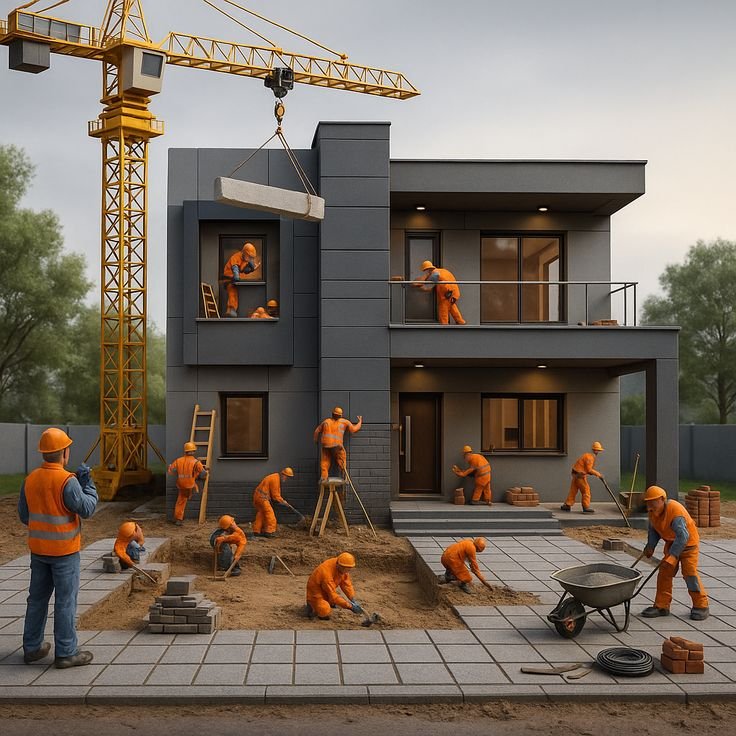For many foreigners looking to invest abroad, pre-construction properties can look like a dream opportunity. Glossy brochures show luxury towers by the beach, the sales team promises “guaranteed returns,” and the payment plans seem easy,just a small down payment and installments spread across the building phase. On paper, it feels like the perfect entry point into overseas real estate.
But for foreign investors, especially men trying to plant roots abroad, pre-construction deals are one of the riskiest moves you can make. Beneath the marketing, there are traps that can drain your money, tie up your capital for years, and leave you without a property or worse, with one you don’t actually want.
Let’s break down why pre-construction properties often turn into financial traps for foreigners.
1. Developers Play on the “Dream Lifestyle” Narrative
When you walk into a sales office overseas, notice what’s being sold: the dream, not the asset. Renderings show rooftop pools, modern gyms, and happy couples sipping cocktails on balconies. But these images are computer-generated fantasies. The actual building may end up looking very different or may never be completed at all.
Foreigners are especially targeted because they buy into the dream without knowing the local track record of the developer. Locals usually know which companies cut corners, delay projects, or never finish them.
2. The Risk of Delays (or Abandonment)
Even in developed markets, pre-construction is notorious for delays. In countries with weaker regulatory frameworks,think parts of Latin America, Southeast Asia, or Eastern Europe delays of two to five years are common.
Some projects are abandoned altogether when developers run out of money or mismanage funds. You might have already paid 50–80% of the property price, but legally, you’re stuck. Try suing in a foreign court system and you’ll quickly realize how powerless you are.
3. Hidden Costs and Inflated Prices
Pre-construction units are often sold at higher prices per square meter than existing resale properties in the same neighborhood. Why? Because the developers are selling the future value of the building, not the present reality.
On top of that, many foreigners don’t realize how many “hidden fees” come later,maintenance costs, association dues, finishing costs (yes, some units are delivered as concrete shells), and local taxes. What looked like a bargain becomes a bleeding expense.
4. No Real Control of Your Investment
When you buy a finished property, you control it: you can rent it, live in it, or sell it. With pre-construction, your money is locked up in a contract. You don’t have an asset yet,you have a promise. If market conditions change, or you need liquidity, you’re stuck waiting for completion (if it ever happens).
5. Legal and Ownership Risks for Foreigners
Foreigners often don’t understand local property law. In some countries, land is owned collectively, or by the government, and developers only lease it. That means you could be “buying” a condo built on shaky legal ground.
There’s also the issue of title deeds. Many foreign buyers discover, years later, that the property they “own” was never properly registered. By then, the developer is long gone, and you’re left with a useless piece of paper.
6. Rental Promises Rarely Deliver
A favorite sales tactic is the “guaranteed rental income” pitch. Developers promise 7–10% annual returns after completion. But here’s the catch: those guarantees usually last only the first year, are subsidized by your own purchase price, and collapse as soon as the project is handed over.
Once the hype fades, you’re left competing with dozens of identical units in the same building. Oversupply kills rental yields, and your “guaranteed” income turns into months of vacancy.
7. Better Alternatives Exist
If you’re serious about buying property abroad, focus on assets that already exist. Walk the neighborhood, see the building, and talk to current tenants. Existing properties allow you to verify quality, assess the real rental market, and actually take ownership immediately.
If you’re in it for lifestyle,buy where you’d want to live, not where a developer promises high returns. If you’re in it for investment,buy cash-flowing properties that you can manage and control from day one.
Final Thoughts
Pre-construction property deals abroad look exciting, especially when presented in polished sales pitches. But for most foreigners, they’re a financial trap: delayed timelines, inflated prices, legal uncertainty, and false rental promises.
Real estate abroad can absolutely be a path to freedom and wealth,but only if you play the game with discipline. As a foreigner, your best defense is simple: never buy promises, only buy reality.
For Passport Champs readers: If you’re considering overseas real estate, focus on markets and deals you can touch, verify, and control. The dream sold by developers is not always the dream you’ll live.













